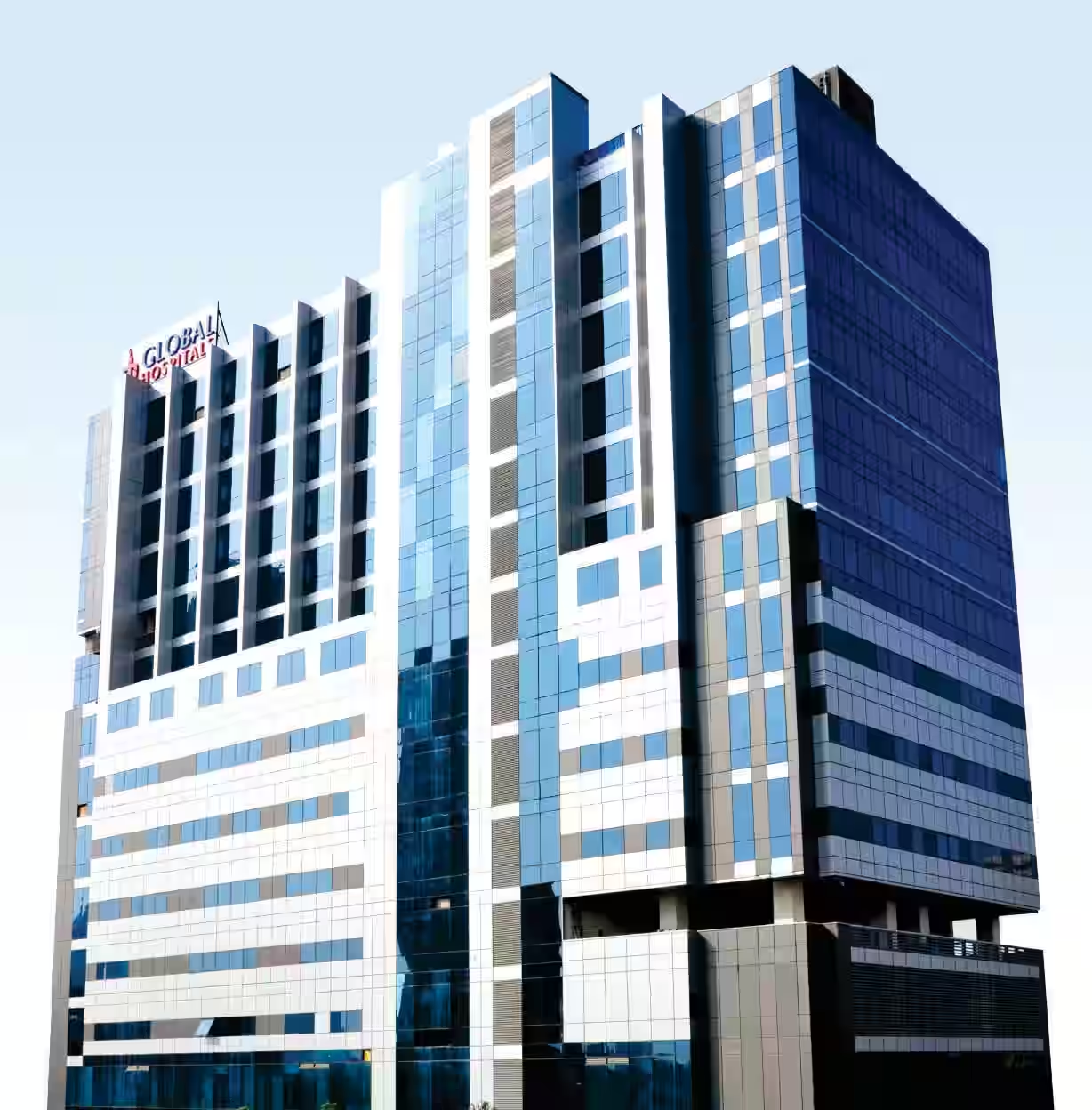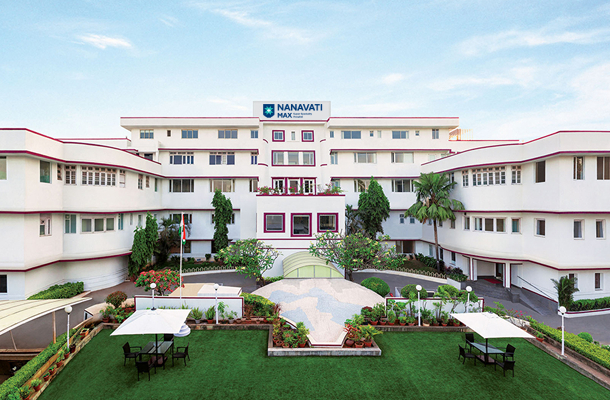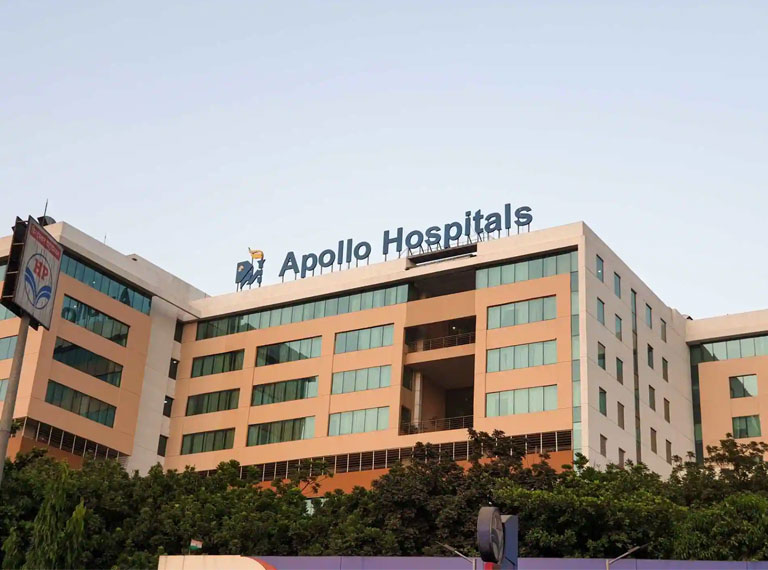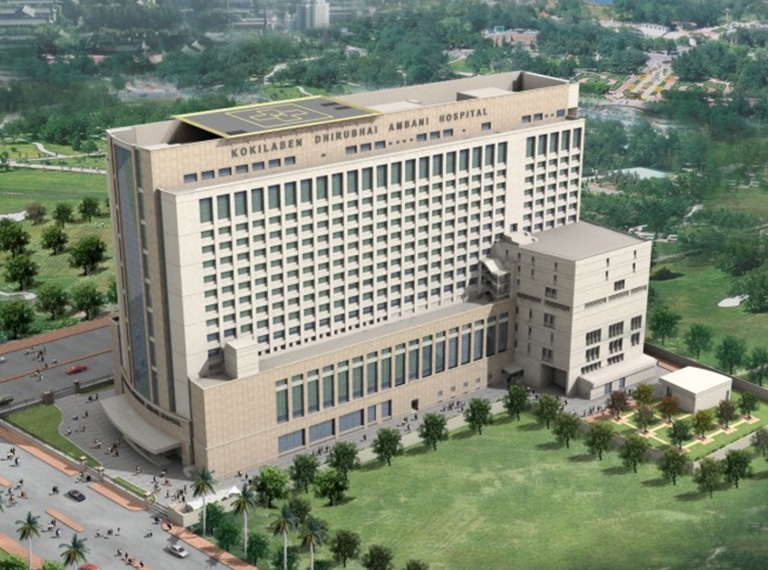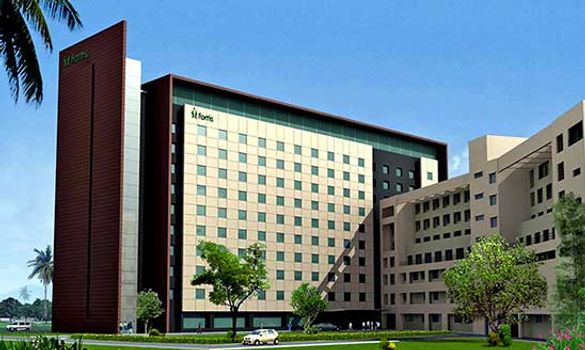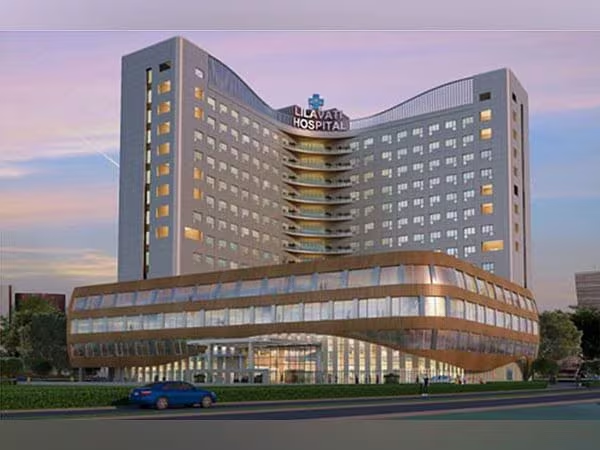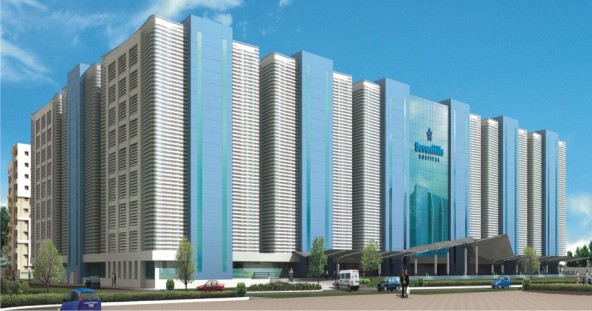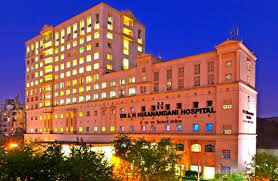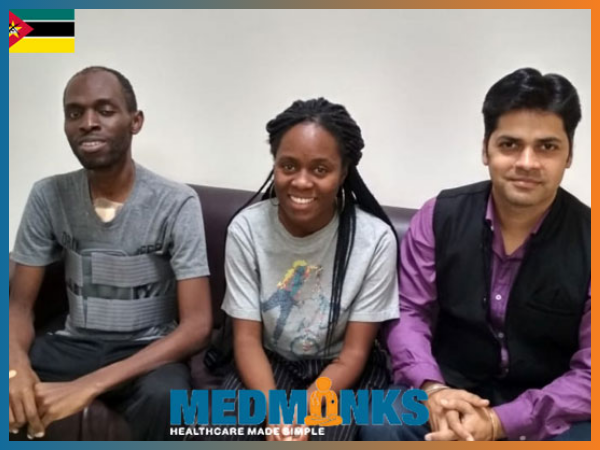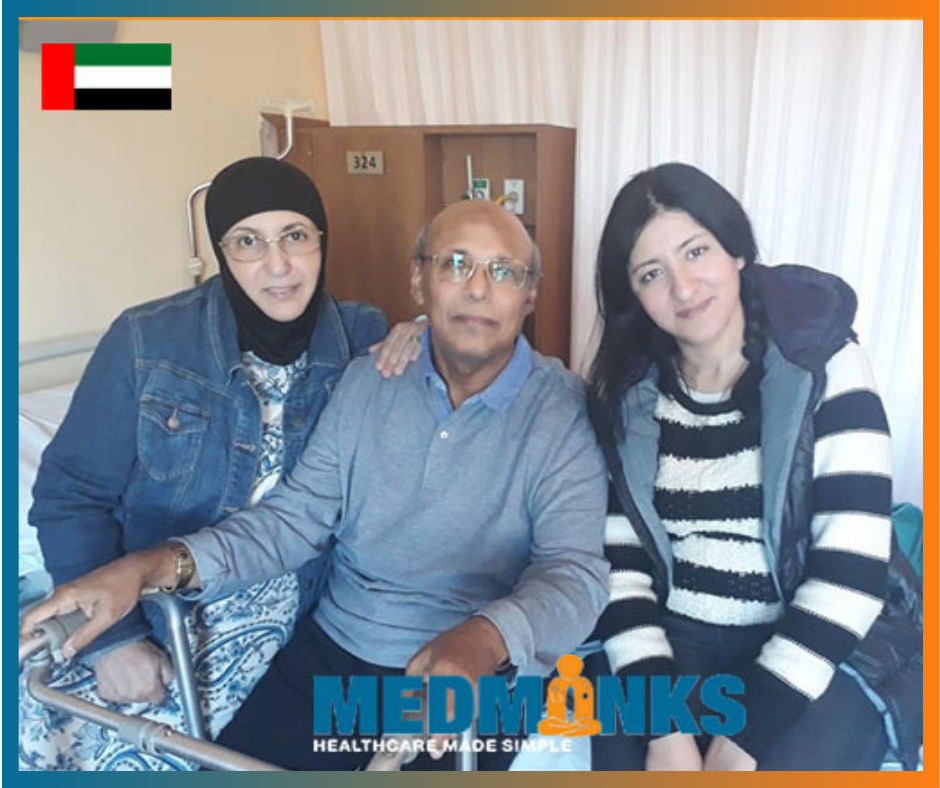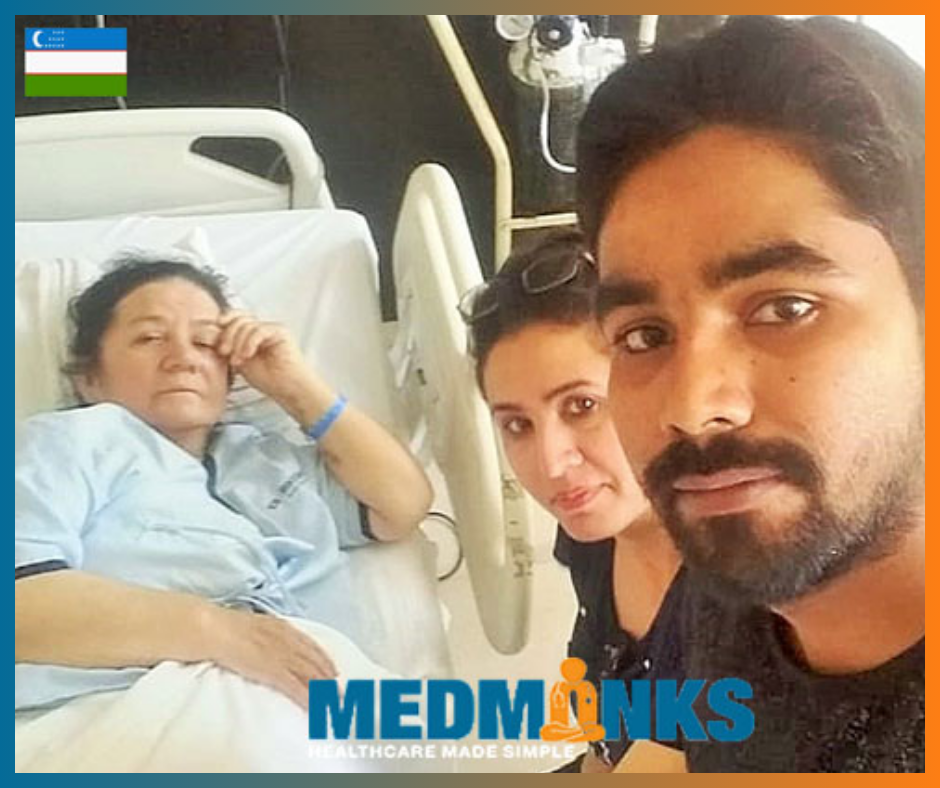Global Hospital is a sub-branch of Parkway Pantai Ltd. Doctors at Global Hospital perform 18000 operations every year First Hospital in western India to perf More..
Dr BalabhaiNanavati Hospital, or popularly known as Nanavati Super Speciality Hospital is amongst the top 10 multi-speciality Hospital in India. The hospital was in More..
Apollo Hospitals, Navi Mumbai is one of the most advanced multi-specialty tertiary care hospitals offering comprehensive services under one roof. Accredited by Natio More..
KokilabenDhirubhai Ambani Hospital, Mumbai started delivering medical treatment in the 2009s first week. The hospital is equipped with 115 ICUs comprising of b More..
Fortis Hospital, Mulund, Mumbai has the first NABH accredited blood band centre in India. Its pathology lab has been accredited three times by NABL. The hospital spe More..
Lilavati Hospital comprises of 323 beds, 12 Operating theatres and workforce of over one thousand people. The WEEK Hansa survey included the hospital in the Best Ho More..
Located in the heart of Mumbai city is SevenHills HealthCity, situated on a sprawling 17 acres of scenic landscape. The hospital is considered as not just one of the famo More..
Established in 2007, Hiranandani Hospital, Vashi – A Fortis network Hospital is an advanced tertiary care, multi-specialty hospital equipped with 149 beds a More..

Don't know where to start?
- Speak to our in house doctor
- Get a response within 5 minutes
Description
Best Kidney Hospitals in Mumbai
Kidney problems have become common in not only adults but newborn children as well. There are so many babies around the world who are born with congenital defects. Every year more than 1000 pediatric transplant surgeries are performed in India. India has become a popular destination of transplantation procedures because of the low cost of treatment here.
Best Kidney Hospitals in Mumbai houses some of the best surgical minds and all the latest machines and equipment required for performing all types of minor and complex conditions. Patients can get in touch with these medical centers using Medmonks website
FAQ
Which are the best kidney transplant hospitals in Mumbai?
KokilabenDhirubhai Ambani Hospital
Fortis Hospital, Mulund
Nanavati Super Speciality Hospital
Lilavati Hospital
SL Raheja Fortis Hospital
Global Hospital
Fortis Hiranandani Hospital
Sevenhills Hospital
Jaslok Hospital
Sir H N Reliance Foundation Hospital and Research Centre
Read more about these healthcare centers on Medmonks website.
I want to receive treatment from the best kidney transplant hospital in Mumbai, how should I check my eligibility? Who is not a suitable candidate for a Kidney Transplant?
Most patients believe that they can't get transplantation because of their age when in reality, anybody with overall good health is suitable for the surgery. Age is definitely not a major factor for determining the transplantation eligibility. However, there are other things that can make a patient unsuitable for the surgery. A patient can't have kidney transplant if:
· They have current life expectancy below 5 years
· They are diagnosed with cancer
· They have any untreatable psychiatric illness or heart disease
· They miss any dialysis appointments or are signing off the dialysis machine early
· They actively abuse substances like alcohol or drugs
· They don't have health insurance or any type of Medicare coverage
Are there any particular benefits of getting a living donor transplant?
An organ for any type of transplant surgery comes either from a deceased (died) person or a living person (donor), who can be a relative or a friend of the patient who willingly donates their kidney. The biggest benefit of living kidney donor transplant is that the patient immediately has an organ to be replaced. They don't have to wait. This surgery is done via an elective procedure. This allows the recipient to receive the organ in their initial much healthier state which eventually delivers better surgical outcomes.
I am a US citizen. Can I get a living kidney donor at the best kidney transplant hospitals in Mumbai?
No, Indian citizens cannot donate their kidney to a foreign resident. Medical tourists are requested to bring their matching donors with them who preferably should be a relative.
Who can be a living donor?
According to the policies of the transplant act of India, a first-degree relative (that is brother, sister, mother, father or spouse) can be a living donor of the patient on emotional ground. The kidney transplant patients usually personally arrange a legal donor for themselves.
Which type of kidney transplant will be scheduled faster?
A living donor transplant is scheduled and performed much faster if the donor is available. It usually occurs within one year. However, a deceased donor surgery can take a couple of years, and the patient might have to wait for 2 – 5 years until a matching deceased donor's kidney is found.
Do the outcomes of living and deceased kidney donor transplantation differ?
Yes. Living donor transplantations have been known to last longer compared to deceased donor transplant surgeries because a living donor's kidney is extracted from a healthy person and transplanted instantly.
How do doctors at the top kidney treatment hospitals in Mumbai evaluate a possible living donor?
Many variables are considered while evaluating a potential living donor. Some of which might include the age (over 18 years), health, blood pressure of the kidney donor. The best matches for organ transplant usually come from blood siblings (sisters or brothers). Areas of evaluation usually include the following:
· Blood group: (A, B, O) compatibility of the recipient & the donor.
· Tissue typing: Once the patient's and donor's blood group is matched, tissue typing is analyzed. The blood of both parties is tested for HLA– A, B, & DR. In most cases, a 50% match is accepted. For donor's who is the spouse of the patient, even lower is accepted
· Most Mumbai kidney transplant surgery hospitals have experience in performing ABO, a type of incompatible kidney transplantation. A transplant is performed even if the donor's and recipient's blood group does not match. Today, advancements in the technology and availability of special drugs, plasmapheresis, and adsorption filters have made it possible even in incompatible kidney donor surgeriesto deliver comparable results.
What will happen if my kidney transplant surgery does not work? Can I die because of this?
No, in most cases patient's doesn't die, as they are monitored for 48 hours in intense care unit at the best kidney transplant surgery hospitals in Mumbai, for detecting any type of complication. In case the transplantation fails the patient should resume back to their dialysis and pursue another transplant.
Will a person survive longer after a transplant or regular dialysis?
According to past data, kidney transplant patient tends to live longer than kidney dialysis patients. This is because the dialysis patient's body only removes waste when they are connected to the machine, while after transplantation, their kidney functions normally removing waste 24*7 from their body.
Top kidney hospitals in Mumbai provide organ transplantation as well as dialysis services.
Are there any potential risks of kidney transplant surgery?
Yes, patients can experience the following symptoms after transplantation:
Clotting of Blood
Excessive Bleeding
Failure or Rejection of Donated Kidney
Risk of Severe Infection spread because of the donated kidney
Is there a specific diet I should follow after my kidney transplant surgery?
Excessive weight gain soon after the transplant can cause complications, some of which include high blood pressure, high cholesterol, and diabetes. Patients should be very careful while choosing their diet and should consume:
High protein food like chicken, eggs (avoid eating them raw), and dairy products with low fat.
High-fiber food items instead of fried foods
2 to 3 liters of water, while refraining from drinking canned soups and high-calorie beverages and drinks.
Olive oil more and avoid using saturated fats like butter.
Patients can contact Medmonks' team for getting more information on the best kidney hospitals in Mumbai.

